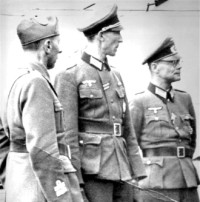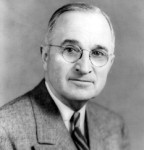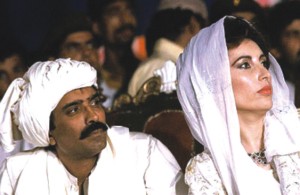|
Musings
When Politics Ends in the Bizarre . . .
Syed Badrul Ahsan
 |
Kurt Waldheim (centre) |
It is often amazing how politics can get to acquire bizarre forms. Think here of Joe Biden, the veteran American senator just picked by Barack Obama as his vice-presidential running mate. Now, of course few men in politics have been as accomplished in the details of policy and legislation as Biden. But we recall too the asinine mistakes he made back in 1988 when, as a contender for the Democratic nomination for president, he was caught plagiarising speeches from other politicians. Initially no one knew that the sheer eloquence in his speeches was actually borrowed from men like the late Robert Kennedy and Britain's Neil Kinnock. When someone finally put the finger on things, Biden meekly went out of the contest.
 |
| Harry Truman |
And today Biden runs for the vice presidency. He might get the job or he might not. But what we will not forget is that old gaffe, the pilferage of words. But enough of him. Move on to this pseudo phenomenon called Asif Zardari. Lots of people in Pakistan and outside were left speechless in stunned surprise when Benazir Bhutto, suave, westernised and three years older, married him in 1986. And then he went on to dominate the two governments she presided over and led to collapse in ways that brought little credit to the couple. In Bhutto's first administration, Zardari's corruption earned him the nickname 'Mr. Ten Per Cent'. In her second, matters turned even more odious. He was made investment minister and soon came to be known as 'Mr. Forty Per Cent'. President Farooq Leghari complained to Bhutto about him. She fumed and could not believe that her husband could be a thief. And now Zardari could be on his way to becoming Pakistan's president. When you think of men like Muhammad Ali Jinnah and the political background they came from, you cannot quite associate their politics with the corruption Zardari and his family have been linked to. It is like Kurt Waldheim, with his sordid Nazi past, serving the globe as United Nations secretary general. But Waldheim was caught rather late in the day, when the UN was behind him and the Austrian presidency was before him. About Zardari, the past is already as gleaming as a sizzling summer afternoon.
 |
Asif Zardari and Benazir Bhutto. |
When you think back on the long history of colonialism in Africa, you wonder how God could have made the likes of Ian Smith. He never thought black Africans were capable of governing themselves, which is when he went for a unilateral declaration of independence for Rhodesia in 1965. All that came to an end of course in 1980. But the surprise is that even after that Smith kept telling himself that he had been right all along. Now turn your attention to Harry Truman. He and his allies eagerly, and quite justifiably, brought all those Nazi and Japanese war criminals to trial at the end of the Second World War. But no one has ever raised the question of what he did, through those atomic explosions, to the people of Nagasaki and Hiroshima. Everyone talks about the miracle of his victory over Thomas Dewey in 1948, but few in his country or anywhere else in the West will be willing to entertain thoughts of putting the Truman administration on posthumous trial for the murder of tens of thousands of innocent Japanese. Move on to China. Time was when we were all happy at the way Mao Zedong and Zhou En-lai led the country, patiently and steadily, to new heights through the austerity of their tunics. A sense of idealism came with that approach, but when you observe China's post-Deng leaders in their western suits, you realise that originality has gone missing somewhere. And it is then that you admire men like Vladimir Putin, however grudgingly, because they are willing to reassert the old glory and global reach of their countries. You recall Stalin and Khrushchev and the way they projected a vibrant Soviet Union once. It is something Putin has tried to do on a humbler scale, after the blunder that was Gorbachev and the buffoonery that was Yeltsin.
Focus once more on Africa. Patrice Lumumba was killed in macabre circumstances by the loyalists of Moise Tshombe, who stood and watched and laughed as Congo's fallen first prime minister was being tortured. Tshombe's Belgian friends said not a word. And one day Tshombe ended up being prime minister himself. Years later, in Liberia, Samuel Doe cheerfully shot the abducted ministers of the fallen William Tubman government on the beaches of Monrovia. And then came a day when he was horribly tortured to death by his enemies.
Back in 1996, Mahmud Ali, the Bangali who chose to stay back in post-1971 Pakistan and serve it as a loyal Pakistani, told bemused journalists in Karachi that 'East Pakistan' yet lived in his heart and that one day it would link up with the old country again. Reminded that Pakistan had acknowledged Bangladesh as a separate country, Ali fumbled for an answer.
Ah, politics! Muammar Gaddafi carries a huge tent with him wherever he goes. Why does no one ever tell him it is all so silly? He might as well take a camel along on his trips to places like Paris! Copyright
(R) thedailystar.net 2008 |
|
